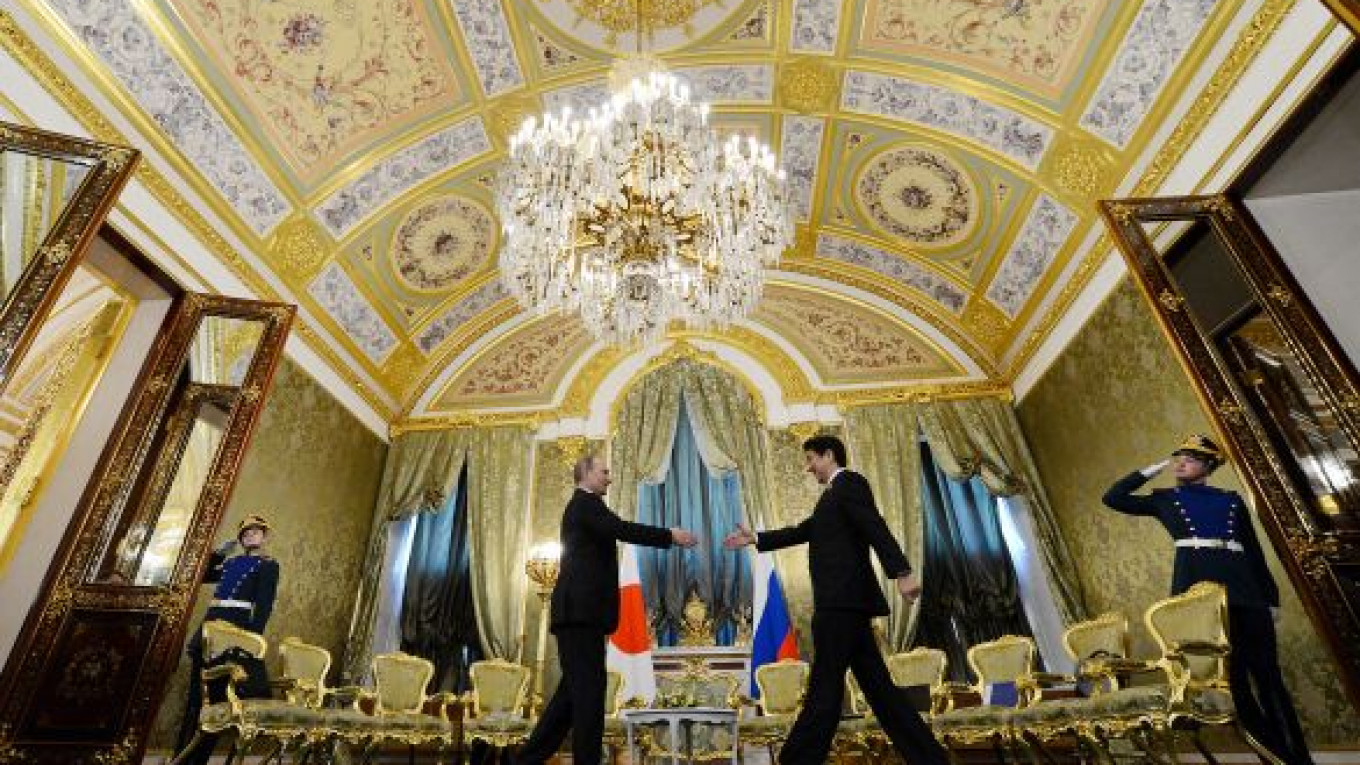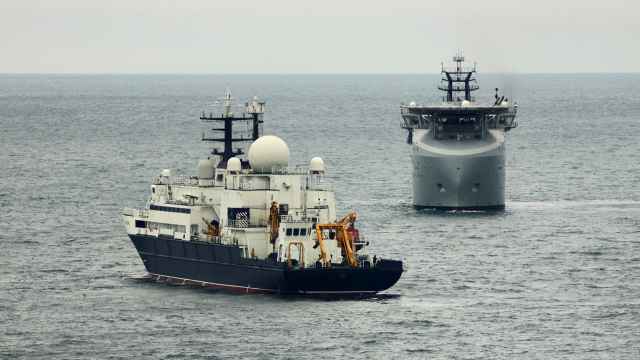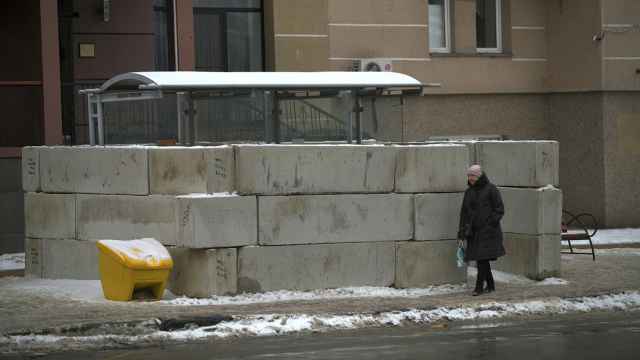During the first visit of Japan's prime minister to Russia in over a decade on Monday, leaders of the two countries expressed "firm determination to conclude a peace treaty" after 67 years of largely futile attempts to resolve the territorial row over the Kuril Islands.
The four islands, with a total size five times the territory of Moscow, prevented Russia and Japan from concluding a peace treaty following World War II.
Japan called for the disputed archipelago, which had been seized by the Soviet Union in 1945, to be returned, but Russia stayed firm in its sovereignty claims over the territory.
Japanese Prime Minister Shinzo Abe met with his Russian counterpart Vladimir Putin to "build new momentum" and "set a future course" for Russia-Japan relations.
"I feel that we have established personal and trusting relations," Abe said at a news conference after his talks with Putin, Interfax reported. "We came to the shared opinion that we should intensify contacts between our two countries' leaders in the future."
‘Japan needs this problem to keep boiling. That will be the only news, if it happens.’
Viktor Pavlyatenko
Leaders of Russia and Japan had stalled discussions over a possible peace treaty and the Kuril Islands amid mushrooming irritants in recent years, including then-President Dmitry Medvedev's 2010 visit to the islands and repeated allegations that Russia invaded Japanese airspace.
Just last Saturday morning, Japan's Defense Ministry said it scrambled fighter jets when two Russian Tu-142 planes flew close to its national border.
Russia has denied violating Japan's airspace.
Alexander Konovalov, head of the Institute for Strategic Assessment, told The Moscow Times that the negotiations were a major success, since both sides expressed determination to resume peace treaty talks for the first time in a decade.
"But it is unlikely that any major progress is possible with regard to the Kuril Islands," he said, adding that "the sides should just start using this territory jointly."
Abe seemed to stymie any hope for joint use, however, saying at the news conference that Japan would be "against the joint use of the South Kuril Islands with foreign states."
Viktor Pavlyatenko, a researcher at the Russian Academy of Sciences' Institute of Far Eastern Studies, said the main reason why Japan decided to boost peace treaty talks is to reinvigorate public attention surrounding the issue.
"Japan needs this problem to stay afloat and keep boiling. That will be the only news, if it happens. Otherwise, I do not expect any other changes," he added.
In contrast, Konovalov said the fact that the sides "articulated their political will and gave instructions to ministries to work on solving all issues" is still a positive sign.
In one notable achievement at Monday's meeting, Russia and Japan agreed to establish a permanent framework for consultations between their foreign and defense ministries.
Apart from political issues, the meeting also had a prolific economic agenda.
Putin said bolstering economic-humanitarian ties would be crucial to create "the best conditions to build trust and make us solve the most complex issues."
Russia has been trying to develop its Far East region by funneling billions of dollars into it's infrastructure, including building two giant cable-stayed bridges in Vladivostok for the 2012 APEC Summit held in the city.
Resource-poor Japan is seen as a pivotal country for providing investment into Russia's Far East, as well as importing 39 percent of the liquified natural gas from Russia's Sakhalin I project.
Both leaders confirmed their desire to exploit natural opportunities in the economic sphere.
"Russia is full of resources, while Japan has advanced technology. With that in mind, it seems to me that our countries have mutually complementary beneficial relations," Abe said in an interview with Itar-Tass just before arriving in Moscow.
The two leaders will get a chance to exploit these opportunities in the near future: Abe invited Putin to pay an official visit to Tokyo in 2014.
Contact the author at i.nechepurenko@imedia.ru
Related articles:
A Message from The Moscow Times:
Dear readers,
We are facing unprecedented challenges. Russia's Prosecutor General's Office has designated The Moscow Times as an "undesirable" organization, criminalizing our work and putting our staff at risk of prosecution. This follows our earlier unjust labeling as a "foreign agent."
These actions are direct attempts to silence independent journalism in Russia. The authorities claim our work "discredits the decisions of the Russian leadership." We see things differently: we strive to provide accurate, unbiased reporting on Russia.
We, the journalists of The Moscow Times, refuse to be silenced. But to continue our work, we need your help.
Your support, no matter how small, makes a world of difference. If you can, please support us monthly starting from just $2. It's quick to set up, and every contribution makes a significant impact.
By supporting The Moscow Times, you're defending open, independent journalism in the face of repression. Thank you for standing with us.
Remind me later.






